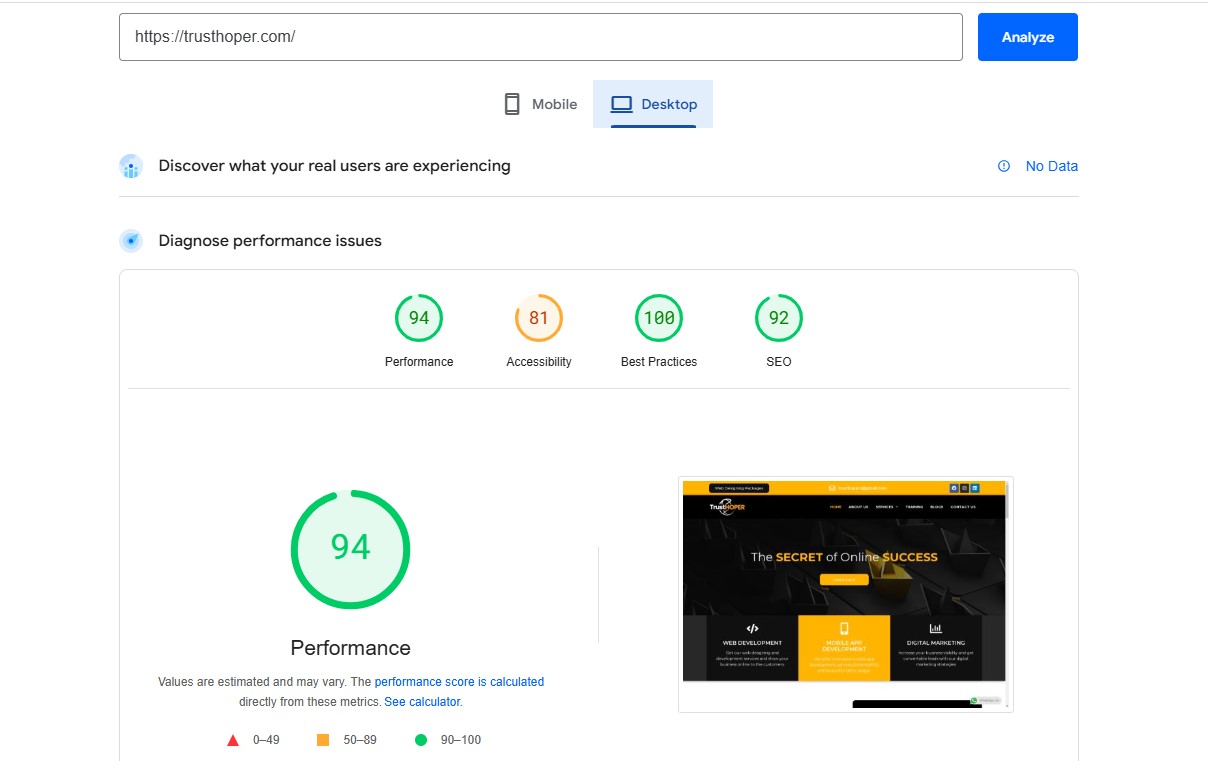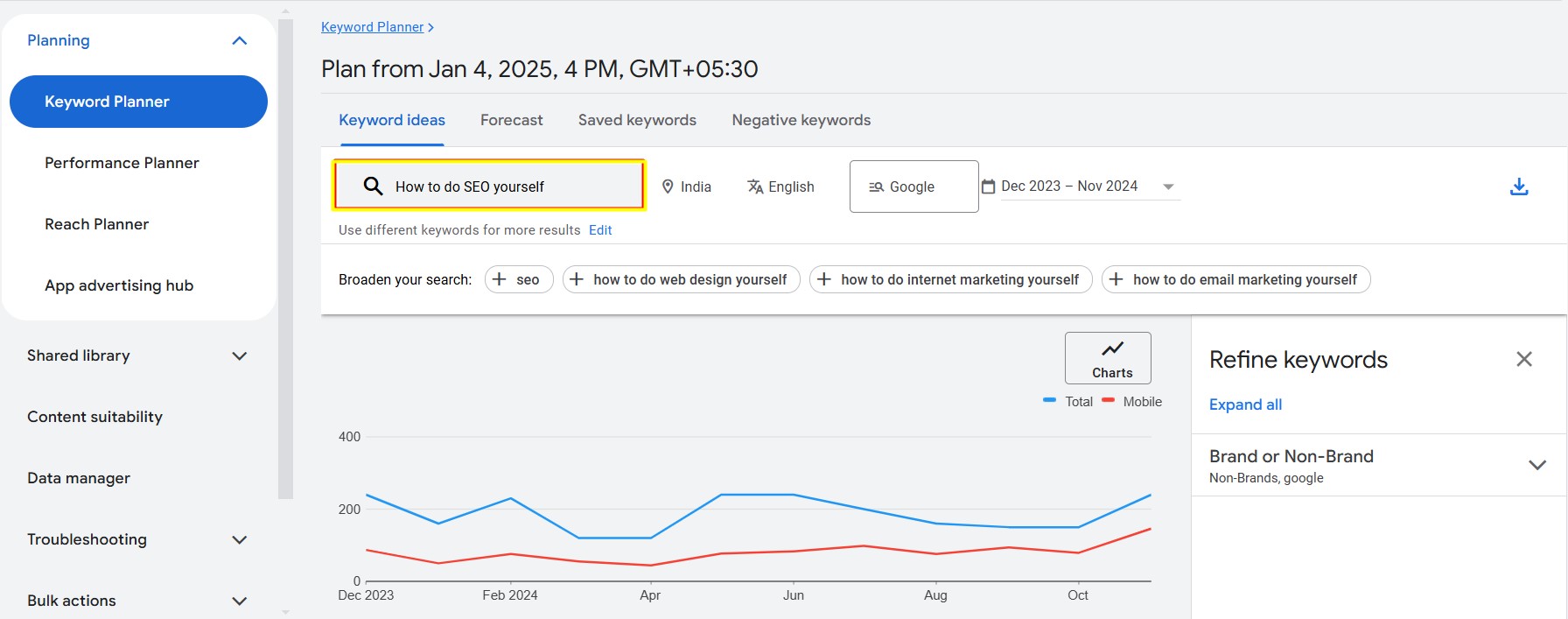How to do SEO yourself for free is not a difficult task to do anymore. With some free tools available on the internet, and with SEO complete guide- one can do SEO yourself for free. It doesn’t always require the help of a specialist but tasks like researching keywords, optimizing a website, and setting up analytics can be managed on their own. So, Let’s get going in the journey of SEO:
Learn how to do SEO Yourself – A Basic Guide
-
Setting up analytics
Tools like Google Analytics 4, Google Search Console, and Google Tag Manager come handy to track engagement and traffic to your website. You can then have access to page views and conversions and thereby, raising ranking of the website. With Google Tag Manager, one can check event tracking and analytics tracking. With this, one can do SEO yourself for free.
-
SEO audit
Google Pagespeed insight and Screaming Frog is a free tool that lets you audit their website SEO and find issues related to on-page optimization and indexing. For example: issues can be missed title tags, or brand mentions are a little outdated.
There are many SEO issues that you need to prioritize over here:
Is the URL being prevented from showing in search results?
How much does this require?
Who will fix the issue?
Does this particular issue affect URLs?
There is 404 error which means when you open the pipeline, you get to know certain issues and start product sales once again.
You need to update the robots.txt file when one of the folders on the site is blocked. This way you can go search engine optimization yourself.

-
Keyword researching
There are many free SEO tools on the internet like ahref.com, Keywordtool.io, Google Keyword Planner and Google Trends which can let you do SEO. Targeting long-tail keywords is easy for your users because it generates engagement and conversions. This way you can do SEO yourself for free.
Here, one can keep certain points in mind:
- Using long-tail keywords: three to four words that target traffic to your website. Long-tail keywords are easier to target than short-tail keywords.
- Targeting keywords that are based on audience interests and related to business offerings. Use keywords that finally keep converting in one sense or the other. For example: based on price also, one can keep keywords.
- Naturally, these keywords can be spread throughout the content. These best practices for keywords can make you rank higher on Google search engine pages.

4. Optimize website content (On Page SEO)
On-page optimizations can help a lot here. One can create new content, add more relevant keywords, and write titles and meta tags which can lead to more engagement and conversions.
Prioritize your website so that one can easily read and understand content. So, that it follows more ranking and more traffic. Use good headings and images so that content ranks on the search engine on its own.
Enhance the customer experience by adding keywords naturally. So, that the user gains a relevant understanding of your subject or website. Also, use various graphics and screenshots when adding content.
Writing title tags of 55-60 characters
Writing meta descriptions from 140-155 characters
Organizing into texts and headings.
Image optimization like image use lower in size and add alt tags
-
Power of Internal linking
To improve website ranking, website crawling, and user journey- add internal links to your content. Internal links let Google crawl and understand your website, it is like having roadways that let Google explore your site.
Benefits of internal links:
Providing more information to users while enhancing their time on the site
A direct route to content is provided to enhance the buyer/user’s journey
Higher rankings are achieved while passing authority from one URL to another URL
-
Usage of backlinks (Off Page SEO)
DIY SEO can be challenging, but more rankings can be achieved with social media sharing and viral content. Google Trends and Quora can let you help you tackle SEO here.
Make some good educational posts so that users want to share on your website/platform. This is one of the ways to attract backlinks to your website.
See trending topics on Quora, Reddit, and Google. See what your competitors are also sharing so that you can get an idea of what to put on your website as compared to them.
Getting more people to link to your website is by sharing content on social media.
-
Track rankings and conversions
Tools like Semrush, ahref and Google Search Console help in measuring the real return on doing SEO on your own.
You can track your performance and work on your errors.
- More conversions and sales can be achieved.
- More traffic and pay-per-click campaigns
- Customer relationship management tools can help
- See for yourself which SEO audit has done its work as a wonder
-
Continue learning SEO
Continue learning from YouTube channels and blogs to enhance SEO knowledge. Keep learning and evolving with new SEO tactics. Search engine results and algorithms are changing every year, so keep growing side-by-side.
Contact Us for SEO Services

